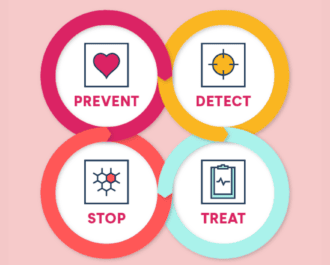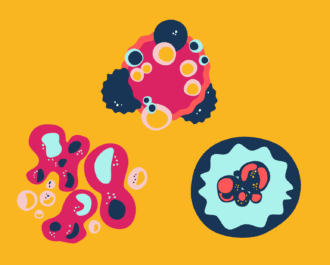
The National Breast Cancer Foundation (NBCF) has awarded 16 game-changing research projects worth over $10 million to support its ambitious aim of Zero Deaths from breast cancer.
Breast cancer is the most commonly diagnosed cancer in the country, with 53 Australians diagnosed each day. Its incidence is rapidly rising, with breast cancer diagnosis rates almost doubling since 1994. Currently, eight women die each day from the disease. Investing in research is the only way to change the stats.
Professor Sarah Hosking, CEO of NBCF said “2020 has been a significant year for shining a light on the critical role of medical and scientific research for better health outcomes. That’s why I’m proud to be able to present 16 researchers with the support they need to push our goal of Zero Deaths from breast cancer.
“To our supporters, we want to thank you, now more than ever, for your continued contributions which are making a real impact in breast cancer research. This year, many of the projects being funded are looking at how cutting-edge technology, and innovation, can bring us that step closer to meeting our aim and I’m excited to see the results that these projects will bring.”
The research projects are based across the country and include looking at how new technologies such as Artificial Intelligence and Immunotherapy could help to save lives through early detection and new treatment options. Some of these projects include:
Dr Roberta Mazzieri (University of Queensland) – New Vaccinations for Triple-Negative and Brain Metastatic Breast Cancer
The study will test new vaccines which could boost the body’s immune response against breast cancer when used in combination with other immunotherapies. Ultimately, the goal is to identify potential vaccination-based strategies to help improve treatment outcomes of aggressive breast cancers.
Professor Kelly-Anne Phillips (Peter MacCallum Cancer Centre and University of Melbourne)– iPreventNext – Helping women with breast cancer to make treatment decisions
Rates of preventative double mastectomies following a breast cancer diagnosis are rising, but it is believed that many of these surgeries are not medically necessary. This study will look at ‘iPreventNEXT’, a new online tool that will estimate a women’s personal risk of a second breast cancer, to help her make a fully informed decision about whether to undergo a double mastectomy.
Dr David Croucher (Garvan Institute of Medical Research) – Supported by Mother’s Day Classic – Targeting the JNK protein to effectively treat Triple Negative Breast Cancer (TNBC)
Using a novel technology platform, Dr Croucher and his team will be able to investigate the complex behaviour of the JNK protein in breast cancer. They believe a “scaffold protein”, which controls the activity of JNK, could be targeted with a drug to inhibit the growth of metastatic cancer cells. This could lead to a new medication option for women with TNBC breast cancer.
Professor John Hopper (University of Melbourne) –New risk factors for Breast Cancer based on Digital Mammograms
Recent studies have shown that women with dense breast tissue are at a higher risk of breast cancer. This study will incorporate new mammography-based risk factors, including breast density, to improve screening processes in the clinic in Australia and globally.
See the full list of research projects here.
In addition to these research grants, NBCF has announced a 2020 COVID extension fund comprising of supplementary funding to support previously funded NBCF research projects only. While all NBCF administered awards will be eligible for up to four months extension at no cost due to the impact of the COVID-19 pandemic, a majority of awards are also eligible to apply for limited financial support.
More News Articles
View all News


